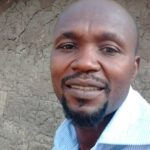Why must we be silent?
- Neelley Hicks
- Dec 10, 2019
- 3 min read
The Women Arise Collective honored the “International Day for the Elimination of Violence against Women” through working in our communities. This report, written by Rev. Dr. Rhoda Manzo reflects her and colleague Mrs. Doris Jenis’ local program in northern Nigeria.
Adolescent girls in Nigeria often come face to face with sexual violence, harassment, and rape. Other forms of abuse include stigmatization and early marriage, which is a growing problem leading to reproductive health concerns. This is also true for those who are in the Northern part of Nigeria, where Boko Haram attacks on girls are very rampant, including the previous rape and abduction of 276 female adolescents.
Many girls find it difficult to talk because issues regarding sex are hardly discussed. Rape results in the stigmatization of victims, including rejection by families and communities. Police sometimes are unwilling to make official reports. Women and girls agonize in silence, which leads to trauma. Such suffering has become a silent epidemic among adolescents.
It is against this background that the Women Arise Collective in Nigeria, with the help of Harper Hill Global, proposed a sensitization visit to public schools in the Northern part of Nigeria. The goal was to create awareness on the need to rise and dispel the shroud of shame and suffering perpetrated against girls who have been raped and stigmatized in their communities. These survivors do not have to keep quiet and suffer in silence. When we stand together, we can make a difference.
Our first outing was to a public school, where we had both Muslims and Christians. The girls were anxiously awaiting our arrival. When we arrived, we were greeted and directed by the principal of the school. After setting up the Virtual Classroom, the program kicked off. Opening prayers were said by two students from the two faiths, followed by an introduction from us and the participants.
Mrs. Doris Jenis made her presentation on the Harper Hill Global as an organization and why we visited their school. I made a presentation on rape, which addressed, — What is rape? — How are people affected by rape? — How does rape affect people? — How do I help someone who has been raped?
After showing “A Plea to My Father,” we took questions from the girls. This became an interesting discussion, as students asked many questions.
Two items, in particular, were striking. One girl told us, “I was raped. I reported it to my parents, who met the rapist. He offered them money, which they accepted. Now my parents sometimes ask me to go back to the rapist. What should I do?” The second question asked was what if, “I was raped and, as a result, became pregnant. Is it wrong if I abort the pregnancy?”
Our second visit was to another public school. During the interactive session, they were shy to open up, so when we noticed this, we asked them to put their questions in writing and passed them forward. The moment we said that questions begin to flow. We received about 15 written questions. Below are just a few of the many we received. — How can we protect ourselves against parents who want to rape us? — If a girl is an orphan and they try to rape her, what can she do? — What is the penalty given for a person who rapes a girl? — In what way can we contract HIV? — How can we protect ourselves from rape? — If you got pregnant as a result of rape and you decide not to abort, when you give birth and the child is grown up, and he asks about his father, what should you tell him?
All the students went home better informed about rape and stigma and the need to speak out rather than keep quiet and die in silence.
When we arise together, we all triumph over trauma.
Your donations make this work possible. Give today to help women arise!





Comments